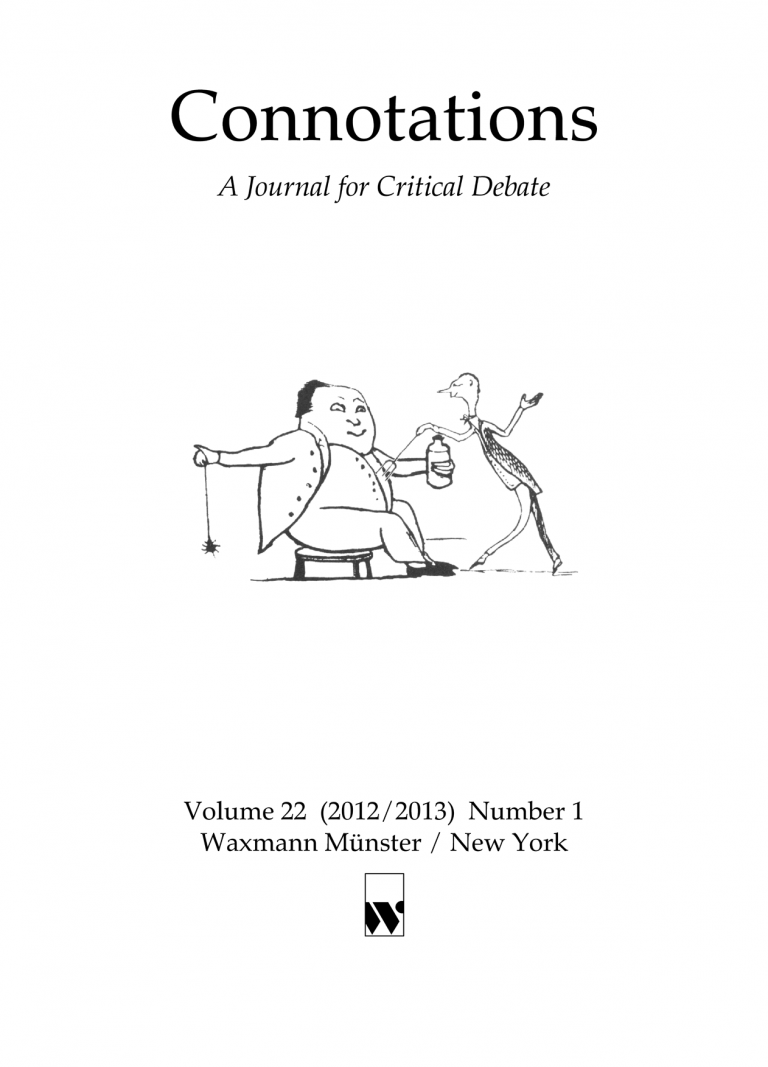Articles in this issue
- John Lyly's Poetic Economy
Arthur F. Kinney, and [else], Vol. 22: 1-12
- Embedded and Embodied Poetry in Edgar Allan Poe's "Ligeia" and "The Fall of the House of Usher"
Elena Anastasaki, and [else], Vol. 23: 207-29
- The Economy of Literary Interpretation
David Fishelov, and [else], Vol. 22: 32-56
- If and It and the Human Condition: Considerations Arising from a Reading of The Merchant of Venice
Inge Leimberg, and [else], Vol. 22: 57-84
- The Two Bertie Woosters: A Response to Lawrence Dugan
William Vesterman, and [else], Vol. 22: 85-88
- Poetics and Politics in Robert Lowell’s “The March 1” and “The March 2”
Frank J. Kearful, and [else], Vol. 22: 89-117
- Generic Differences: A Response to Burkhard Niederhoff
Raimund Borgmeier, and [else], Vol. 22: 118-24
- Against an Ethics of Absolute Otherness, for Cross-Cultural Critique: A Response to Tammy Amiel-Houser
Lars Eckstein, and [else], Vol. 22: 125-36
- Authorities of Representation: Speaking To and Speaking For. A Response to Barbara Korte
Lisa Lau, Ana Cristina Mendes and [else] and Ana Cristina Mendes, Vol. 22: 137-43
- Artists as Mothers: A Response to June Sturrock
Louisa Hadley, and [else], Vol. 22: 144-56
- Ruinous Fathers, Lethal Mothers: A Response to June Sturrock
Lena Steveker, and [else], Vol. 22: 157-61
- A Daughter Abandons Her Literary Mother: A. S. Byatt’s The Children’s Book and Iris Murdoch’s The Good Apprentice. A Response to June Sturrock
Nick Turner, and [else], Vol. 22: 162-65
[/pod_if_field__1]
